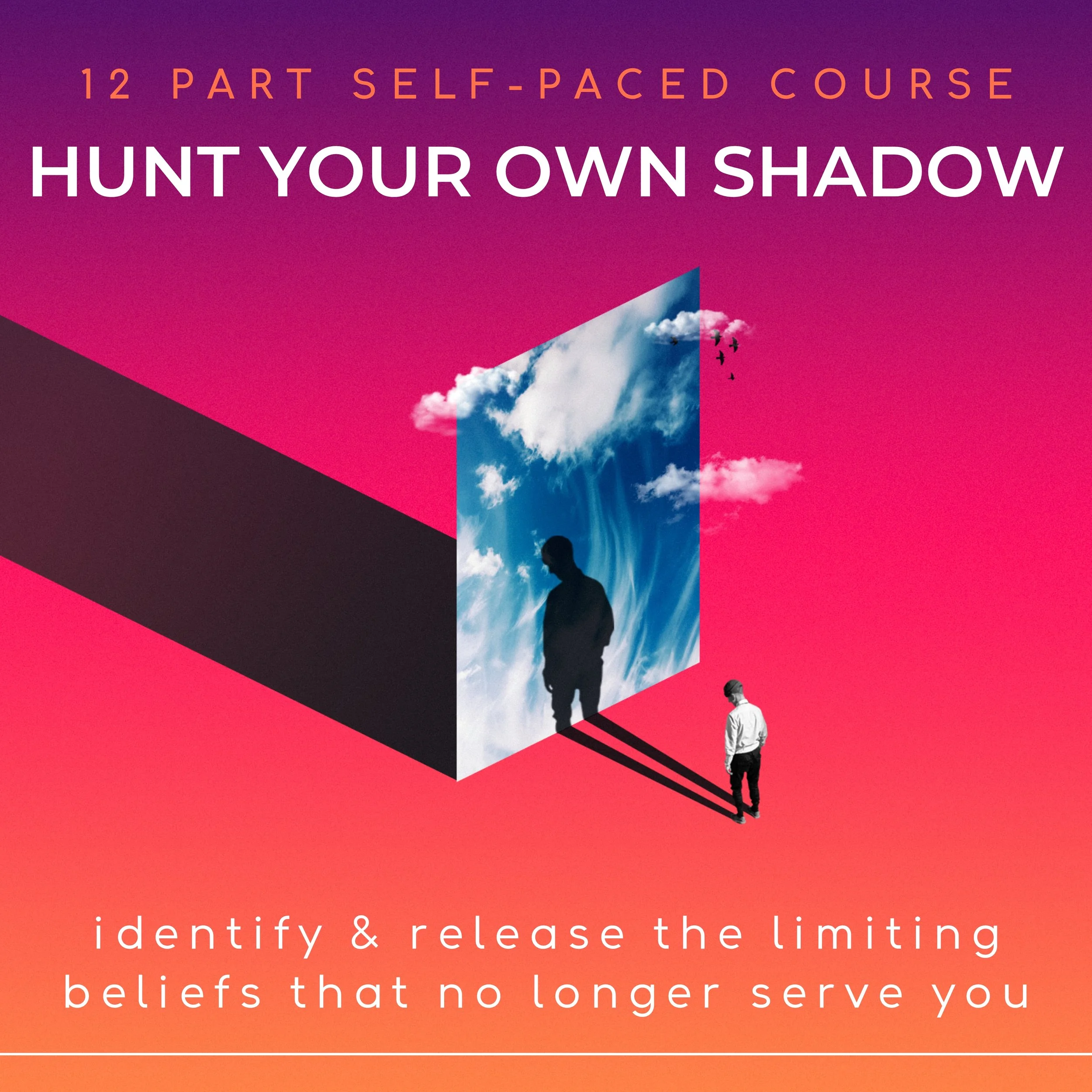I Don’t Know Who I Am - A piece of writing therapy
I don’t know who I am.
Sure, I can list superficial markers of identification, but these feel more like generic labels as opposed to true representations of ‘me’.
I am a father.
I am an author.
I am a husband.
I train martial arts.
I prefer quiet recreation.
I could go on an on with these descriptors, but their sum still wouldn’t come close to encompassing who or what I am. Beyond that, I simply do not connect to them. That list would describe a person, but not me. I don’t think it could ever describe me. I am not sure that there is a ‘me’ to be described.
To be clear, I have no way of knowing what you feel about yourself (or lack thereof), nor what is considered within the normal range of neurotic introspection. But what I do know, is that I am regularly tortured by a distinct feeling of lack. Emptiness. An inner void that cannot be filled or satiated, no matter what I try.
My memory tells me that I don’t always feel this way. It tells me that on good days, I am significantly less introspective and the introspection I do undertake results in positive discoveries.
Unfortunately, not every day is a good day.
On days like today I feel like I have no centre. Like I am unable to form an opinion on anything and even if I could, I am unqualified to do so. On days like today, my brain forces me to contrast these lacks against memories of people who are my opposite.
I am always intrigued by people who are unequivocally themselves. You know, the people who know what they think about a topic and are confident enough to express their opinion on the matter. I listen in awe as they state how they feel and then invite lively debate on the topic.
‘I feel this way …’
‘I think that it’s more like …’
‘That’s not how I remember it …’
‘In my experience I …’
When done well, these people quickly become the centre of attention in most social groups. They direct the conversation topics and engage the group. They balance what they know, or believe, against the flow of the conversation. They know themselves and are more than willing to project it.
Not me.
I am happy to write pieces like this one, neurotically dissecting the nuances of my mind. I am happy to play devil’s advocate or provide a mirror for another to springboard their ideas off of. I can look deeply into most issues and see the reasons that others would hold a position on each side.
But if you ask me to tell you what I think, I will be stumped. When pressed, I will say what I feel, but then will be sure to caveat that statement with multiple disclaimers:
‘I don’t have enough information yet.’
‘There are probably multiple perspectives we haven’t considered.’
‘Although I feel this way today, I know that my mental state may shift and with it likely my opinions.’
‘I wasn’t raised in that environment/with those experiences, so I can’t possibly hope to understand their mindsets.’
‘I don’t belong to that demographic, so my opinion isn’t that relevant.’
What all this boils down to is the distinct feeling that I am different from most people. I feel like I am living in a meta-verse. A place that exists outside of, but adjacent to, the reality of other people.
What is my personality? Do I have one beyond neurosis?
Unsurprisingly, I have spent a significant amount of time ruminating on why I feel this way. Is it simply an aspect of my personality, or is it due to the trauma and neglect I suffered as a child? Likely, it is a combination of both.
When other kids where being hugged by their father, I was being ignored. When they were being taught the necessities of life, I was learning how to scrounge for food. When they were playing, I was fretting about the potential volatility of the addict sitting next to me on the couch who was waiting for my father to collect his order. When they were concerned about their favourite sports team, I was concerned about survival.
Clearly, this kind of dysregulation will cause problems throughout a life – like dissociation. I am so disconnected from myself that the prior sentence is written in the third person. I could have edited it away, but it servers a higher point.
When I get stressed, I disappear.
To survive trauma, people dissociate. Basically, their minds go elsewhere. Great in the moment, but terrible over the long term.
I have distinct memories of ‘living outside my head’. I would often imagine seeing out of other people’s eyes. As in, I would be walking down the street, and rather than looking out of my head, I would be seeing myself from the perspective of those around me. At the time this felt very real and would be a daily occurrence. It still happens, but thankfully not as much.
I also struggle with cause-and-effect relationships. I don’t have a feeling of reality or substance. There seems to be a core belief inside of me that holds that ‘I am not real’ or that ‘none of this is real’ – thus I am prone to making decisions that are not at all in my best interest. After all, if this isn’t real, what does it matter anyway? I am regularly surprised to discover that my choices result in things happening. Ultimately, this has had a catastrophic impact upon my relationships and wellbeing. It has cost me friendships, relationships, family connections, work opportunities, money, and sobriety. Logically I ‘know’ that my actions will cause things to happen, but even to this day, in the moment I certainly do not feel that they will.
I am not even connected to my body. Other people seem to know when they are hungry or full, when they are tired, sore, or sick, but not me – or at least not on the bad days.
Take eating for example. I find it extremely hard to know how much food to eat. Give me a plate and I will eat it all and not know if I am full. If that plate was half as big, or double the size, my reactions would be the same.
I don’t even know what I want to eat. Where others have preferences and tastes, I only have a list of ingredients that I need to avoid due to certain intolerances. If it won’t hurt me, it’s fine. Where others get joy from food, I just get sustenance. Sometimes I overeat and feel sick. Other times I under eat and feel sick. Yet I watch with amazement as those around me check into themselves and choose the perfect meal to satisfy their cravings, and then somehow eat an amount that fills them up without overdoing it.
I could go on with specific examples, but they will all tell the same story: I feel fundamentally flawed.
I feel like I have no strong sense of self to fall back on. I feel unclear as to who I am or what I believe. I feel different to those around me. I feel broken beyond repair.
It is here that the memories of the good days want me to remind you that I don’t always feel this way. Which is true of course, but it also leads to a deeper level of confusion. If I don’t always feel fundamentally flawed, that means that my sense of self is constantly in flux. Even in the meta sense. This entire post, the thrust of my argument (if it could be said that this rambling mess has a point) isn’t even solid. The very fact that I don’t always feel this way ‘proves’ how volatile my sense of self is.
True, on a good day, none of this would matter to me. But unfortunately, today is not a good day. Whatever I am right now, if there even is a me at the core of all of this, is suffering.
Is it right to say that ‘I am suffering?’ As in, I (myself) AM the suffering? I don’t know. But what I do know is that writing all of this down has resulted in me feeling a lot better. More focused. More present.
I have said it before, but it is worth repeating, writing therapy is legit. The page listens, it does not judge, and it has the perfect memory. So now the question is, should I share this? Would it be beneficial for anyone to read the ramblings of a broken mind? Would it, on balance, create a positive experience for those who choose to navigate my crazy?
I guess if you are reading this, only you can be the judge. Sorry if I have wasted your time. If it has helped you a bit, and you want to try some writing therapy of your own, you could check out this course on Skill Share or this one on Insight Timer.
Perhaps a pen and a page will be the outlet we both need to heal, grow, and connect with our true selves – if such a thing exists of course.
I wrote my first book ‘Under The Influence, Reclaiming My Childhood’ as an act of writing therapy. Doing so healed me. It covers the most traumatic and embarrassing moments of my childhood - so it isn’t for everyone. But it’s readers consistently share their gratitude in finding a story similar to their own. You can read it here, in its entirety, for free.
Your shadow is the gateway to a more authentic you.
This course is your guide to profound inner work. Through powerful insights, guided prompts, and proven techniques, you'll navigate your shadow, heal unresolved wounds, and reintegrate the parts of yourself you’ve long ignored.
What’s Inside:
12 x Guided Meditation & Contemplations
12 x Introspective Prompts
12 x Expansion Challenges
A comprehensive instructional PDF guidebook
Unlimited email coaching for ongoing support and personalized guidance
Explore full course details and watch intro video here!
This isn’t just about healing, it’s about meeting your shadow head-on, embracing every part of yourself, and reclaiming your full power.
Are you ready to face what’s been hidden and step into your truth?

